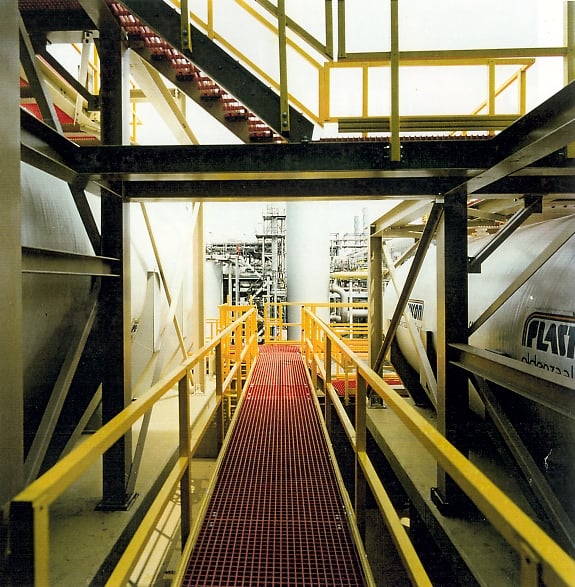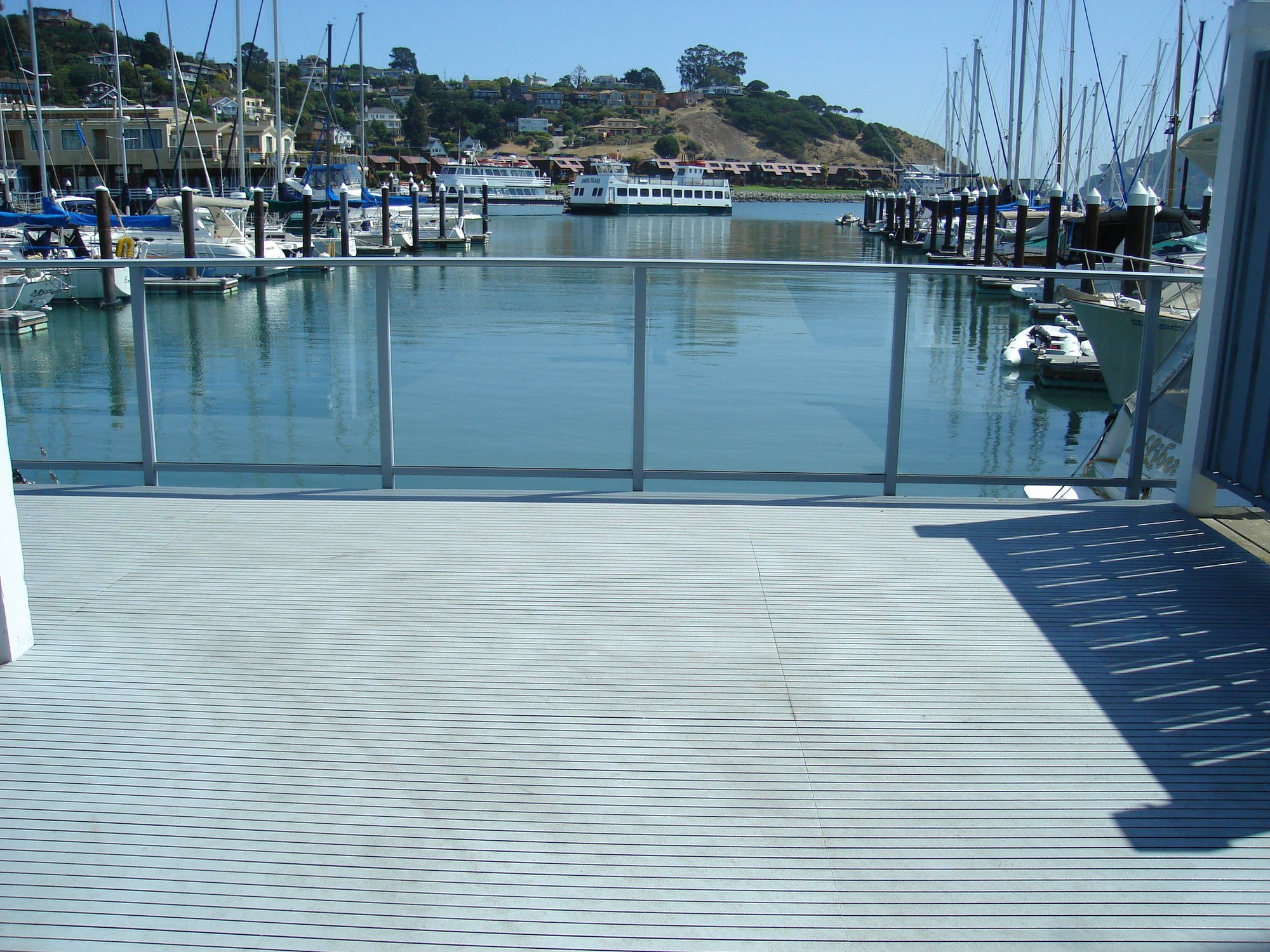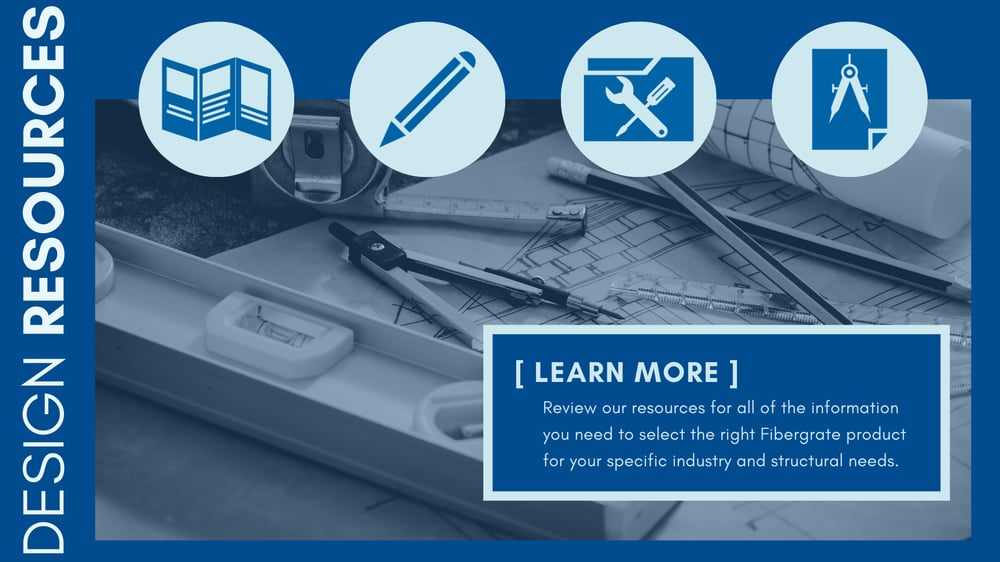Fiberglass reinforced plastic (FRP) panels are made of composite materials known for their...
4 Ways to Use Fiberglass Reinforced Plastic FRP Panels to Improve Your Facility
Fiberglass reinforced plastic (FRP) panels are made of composite materials known for their strength, durability, and versatility. By combining plastic resin with reinforcing fiberglass fibers, FRP panels offer properties that make them ideal for various industrial and commercial applications.
Here are four key ways these panels can significantly enhance your facility.
1. Fiberglass Reinforced Plastic FRP Panels Enhance Hygiene Standards
Maintaining cleanliness in industrial settings, especially those involving food processing or pharmaceuticals, is a constant challenge. Traditional materials like wood, concrete, and metal can be porous, harboring bacteria, mold, and other contaminants. FRP panels, on the other hand, offer a hygienic solution.
Fibergrate offers FRP grating panels infused with Microban antimicrobial technology. This addition actively inhibits the growth of bacteria, mold, and mildew on the material’s surface, making it an excellent choice for environments where hygiene is paramount.
Benefits:
Bacteria and Mold Resistance: The non-porous surface of FRP panels inhibits the growth of harmful microorganisms.
Chemical Resistance: FRP panels withstand harsh cleaning agents, ensuring thorough sanitation without damaging the material.
Easy Cleaning: Smooth surfaces make cleaning quick and efficient, reducing downtime and labor costs.
2. Improving Structural Integrity with Fiberglass Reinforced Plastic FRP Panels
Structural integrity is critical for the safety and longevity of any industrial facility. FRP panels are a popular solution due to their impressive strength-to-weight ratio and resistance to corrosion.
FRP panels can replace traditional materials like steel, aluminum, and wood in various applications. For instance, they can be used for wall panels, ceiling panels, and even structural components.
Benefits:
Corrosion Resistance: FRP panels are resistant to rust and corrosion, even in harsh environments, extending their lifespan and reducing maintenance needs.
High Strength: Despite being lightweight, FRP panels offer exceptional strength, making them suitable for load-bearing applications. Pultruded grating is the preferred choice for covering longer spans since it is stiffer than molded grating. However, both are quite strong.
Durability: FRP panels are resistant to impact, rot, and pests, ensuring long-term structural integrity.
3. Enhancing Safety Measures
Safety is a top priority in industrial environments, and FRP panels contribute significantly to a safer workplace.
Benefits:
Electrical Safety: One of the key safety advantages of FRP panels is their non-conductive nature. This makes them an excellent choice for applications where electrical hazards are present, reducing the risk of electrical shock.
Fire Safety: Many FRP panels have a Class A fire rating, meaning they offer superior fire resistance compared to traditional materials. This can help prevent the spread of fires and protect both personnel and assets. Our phenolic gratings meet even higher standards for fire resistance.
Compliant: FRP panels from Fibergrate are designed to meet or exceed safety regulations and standards, ensuring your facility is up to code.
Slip Resistance: Many FRP panels have textured surfaces which allow for more traction, making them safer in wet environments. Fibergrate’s grit surface additive is made of recycled aggregate, making it a sustainable choice for slip resistance.

Fiberglass reinforced plastic walkway in oil and gas industry
4. Streamlining Installation and Maintenance Processes
In fast-paced industrial settings, time is money. FRP panels help streamline both installation and maintenance processes. The lightweight nature of FRP panels makes them easier to handle and install compared to heavier materials like steel. This translates to quicker installation times and reduced labor costs.
Additionally, thanks to their corrosion resistance and durability, FRP panels require minimal maintenance. This means less downtime for repairs and replacements, resulting in greater operational efficiency.
Benefits:
Faster Installation: Reduces downtime and labor costs during construction or renovations.
Reduced Maintenance: Requires less frequent repairs and replacements, saving both time and money.
Cost-Effective: The long-term benefits of FRP panels often outweigh the initial investment.
10 Popular Applications for FRP Panels
Food Processing Facilities: These components are ideal for floors, platforms, handrails, guardrails, and partitions in food processing plants due to their resistance to moisture, bacteria, and chemicals, ensuring compliance with food safety standards.
Chemical Processing Plants: In chemical processing facilities, FRP panels are used to construct walkways and accessways, loading platforms, manholes. and trenches because they are corrosion-resistant and can withstand exposure to a wide range of chemicals.
Commercial Kitchens: They can be installed on platforms, floors, and ceilings to provide a hygienic and easy-to-clean surface, inhibiting the growth of bacteria and mold while withstanding frequent cleaning with harsh chemicals.
Swimming Pools and Water Parks: FRP can be used to construct pool structures and platforms in aquatic facilities due to their resistance to chlorine and other chemicals, providing a durable and low-maintenance solution.
Transportation Infrastructure: Fiberglass reinforced plastic grating panels are employed in transportation infrastructure such as bridges, tunnels, and platforms for their lightweight yet strong properties, contributing to reduced construction costs and enhanced structural integrity.
Cold Storage Facilities: FRP serves as insulation for walls and doors in cold storage facilities, maintaining stable temperatures and preventing moisture buildup, thereby preserving the quality of stored goods.
Livestock and Agricultural Buildings: The material can be used in agricultural buildings and livestock enclosures as wall and ceiling materials due to their resistance to corrosion from animal waste and cleaning agents, promoting animal health and welfare.
Laboratories and Cleanrooms: These panels can be installed in laboratories and cleanrooms for their non-porous and smooth surfaces, reducing contamination risk and facilitating easy sterilization, which is crucial for maintaining sterile environments.
Marine Applications: FRP paneling is utilized in marine environments for docks and decks due to its resistance to saltwater corrosion and lightweight properties. It can also be manufactured for additional UV resistance.

FRP grating used at yacht club
Recreational Facilities: FRP panels are used in recreational facilities such as sports stadiums, gyms, and theme parks for their impact resistance, ease of maintenance, and ability to withstand high-traffic areas, ensuring long-lasting aesthetics and safety.
Conclusion
Fiberglass reinforced plastic (FRP) panels offer a versatile and high-performance solution for enhancing various aspects of industrial facilities. From improving hygiene and structural integrity to bolstering safety measures and streamlining operations, FRP panels are proving their value across a wide range of applications. Whether you are in the food processing industry, chemical manufacturing, or any other sector where safety, hygiene, and durability are paramount, FRP panels can help you achieve your goals while reducing costs and improving efficiency.
Explore Fibergrate's FRP panel solutions and start modernizing your facility today!
Topics: FRP, Fiberglass Reinforced Plastic, Safety


